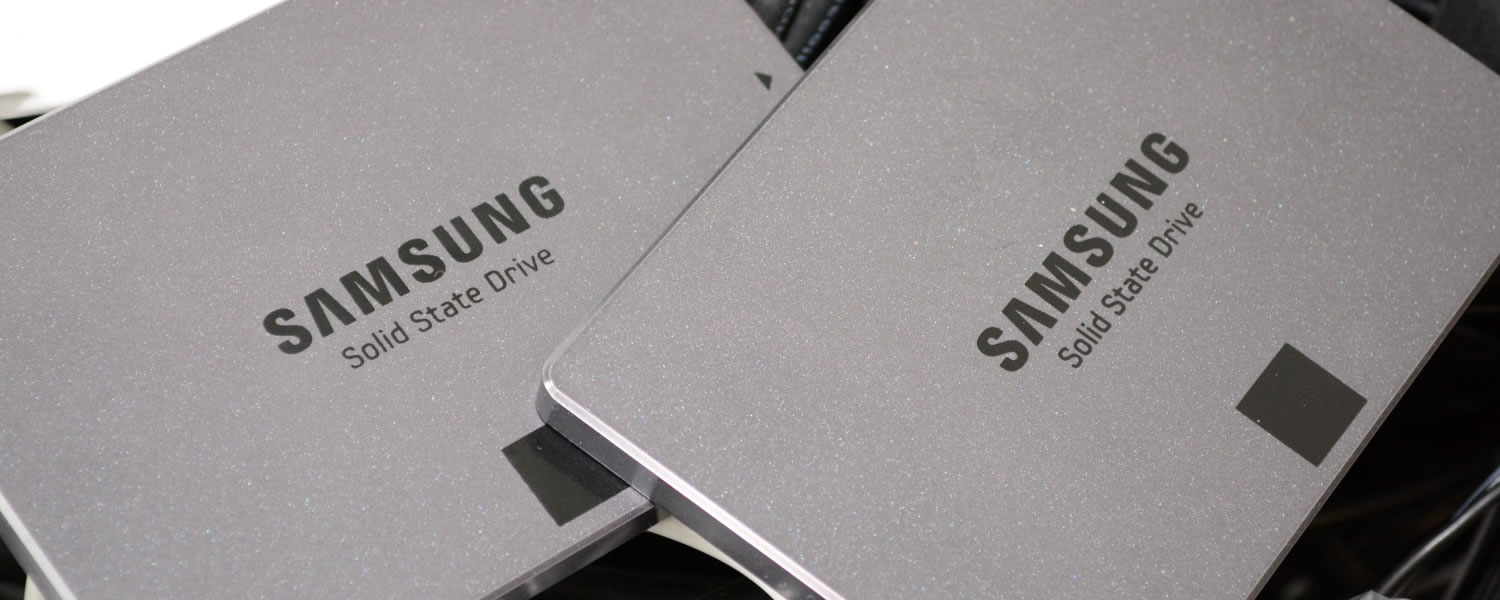Benchmarks: CrystalDiskMark 3.0
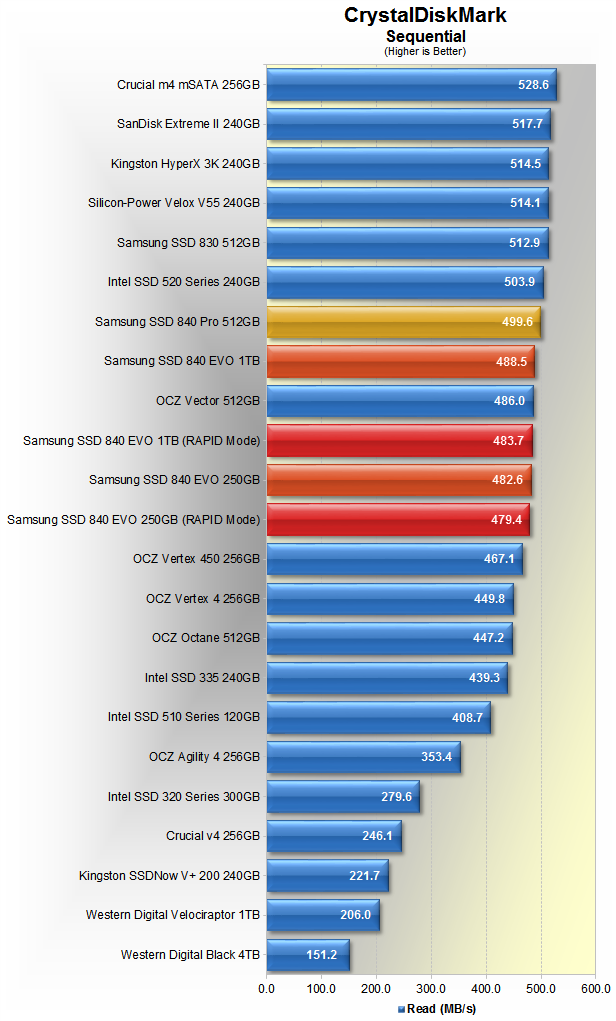
The Evo drives delivered roughly 480MB/s in CrystalDiskMark's sequential read test and enabling RAPID made no difference on the 250GB model, in fact it was a little slower. The 1TB version gained around 6MB/s, but certainly nothing to write home about.
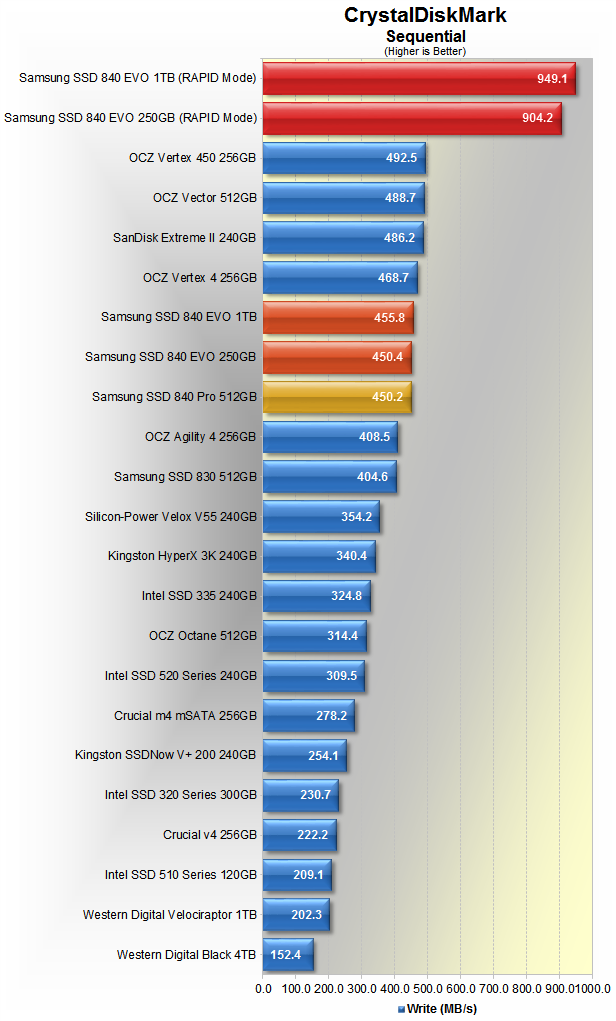
Conversely, CrystalDiskMark's write results were fantastic for the Evo, which easily met the 840 Pro's results before enabling RAPID and far exceeded them after.
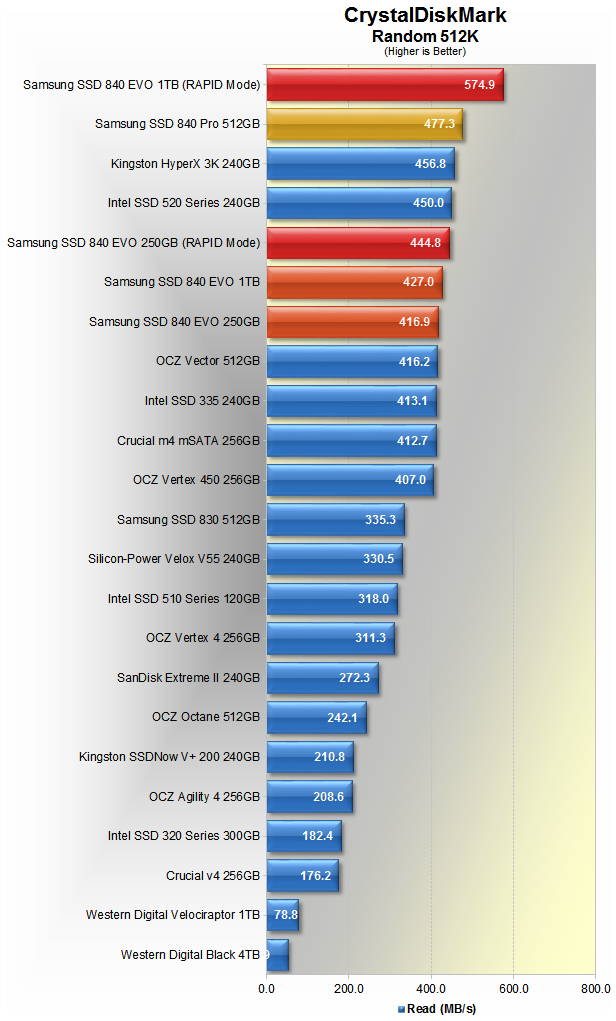
The 250GB Evo managed 416.9MB/s while the larger 1TB model hit 427MB/s in the random 512K test, both being slower than the 840 Pro's 477.3MB/s, though enabling RAPID on the 250GB model got it closer with 444.8MB/s and the caching feature was enough to push the 1TB model to 574.9MB/s.
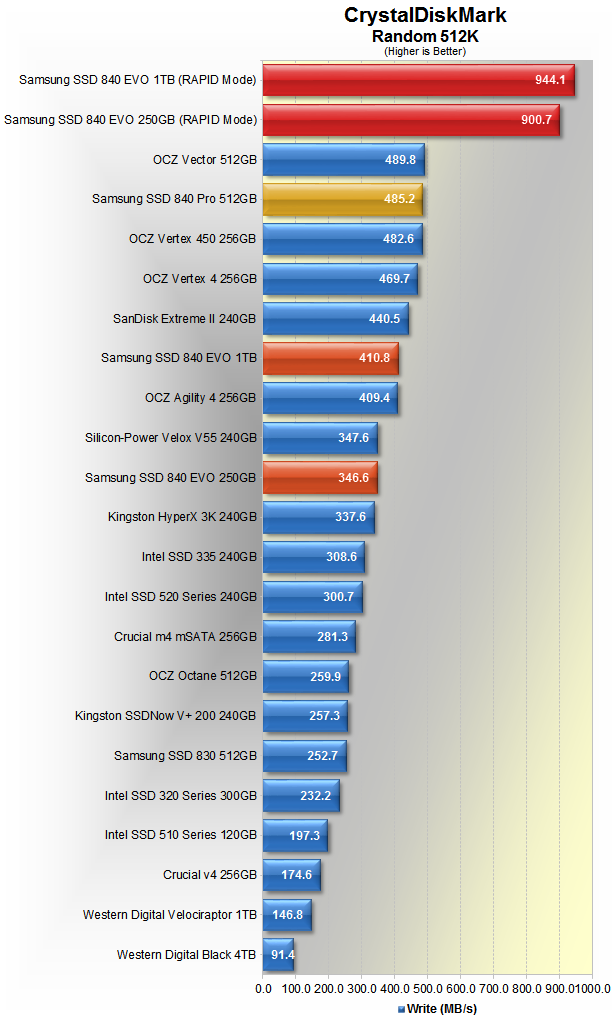
As was the case with the sequential write performance, the 840 Evo drives are incredibly fast with RAPID enabled, but without the caching feature the 250GB model dipped to an average throughput of 346.6MB/s and the 1TB model delivered 410.8MB/s – still very respectable.
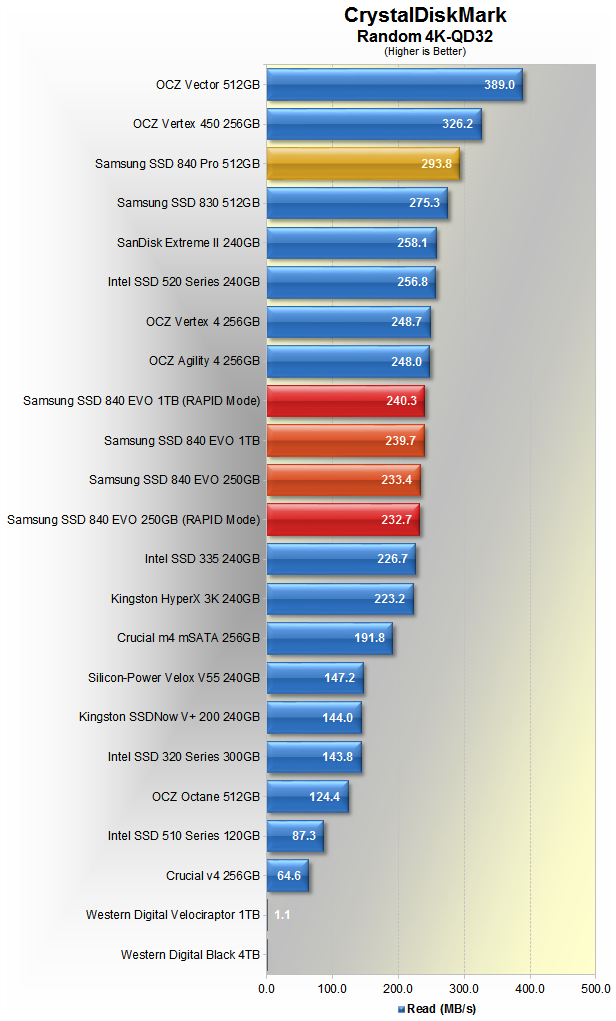
RAPID had virtually no impact on the random 4K-QD32 read test with the Evo drives achieving 240MB/s and 233MB/s, both much slower than the 840 Pro's 293.8MB/s.
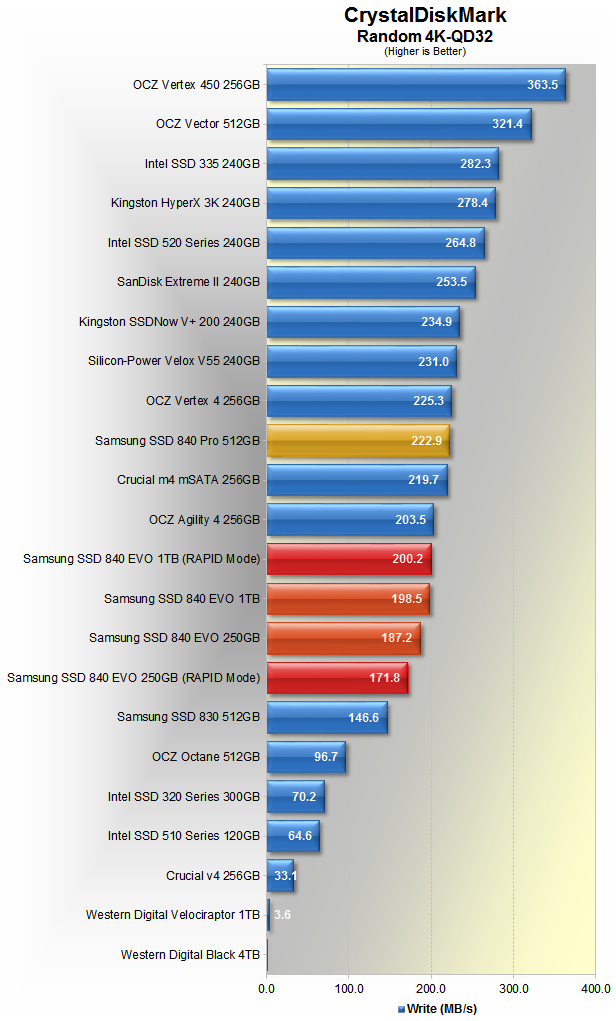
The caching feature didn't boost the Evo's 4K-QD32 write results either and all of Samsung's drives struggled here, with the 840 Pro performing best among its siblings but still only making it halfway up our graph.
